Accurate results for meaningful goal setting
We offer the following services to help you achieve improved health and performance.
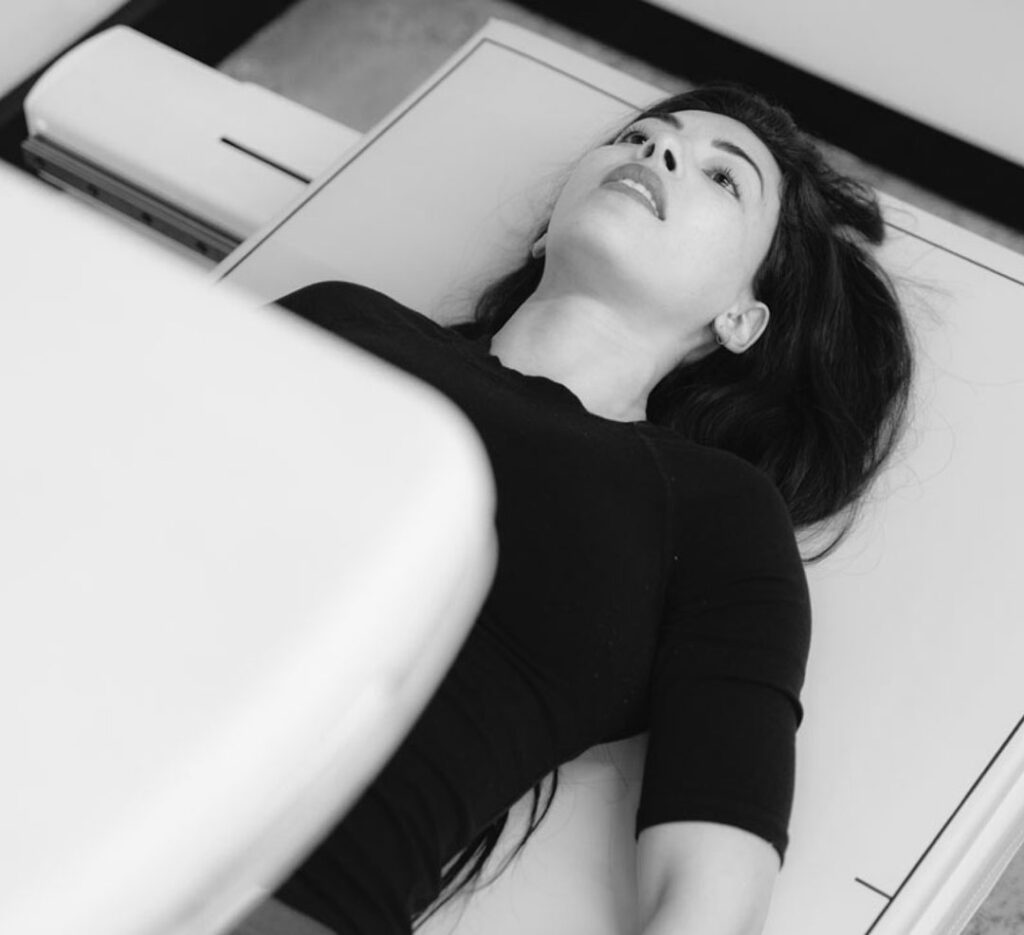
The DEXA Body Composition scan measures muscle mass, fat mass and body fat percentage. DEXA scans are quick and painless and are completed in 3 minutes. Once the scan is completed, a detailed report will be generated and explained to you by an accredited exercise physiologist.
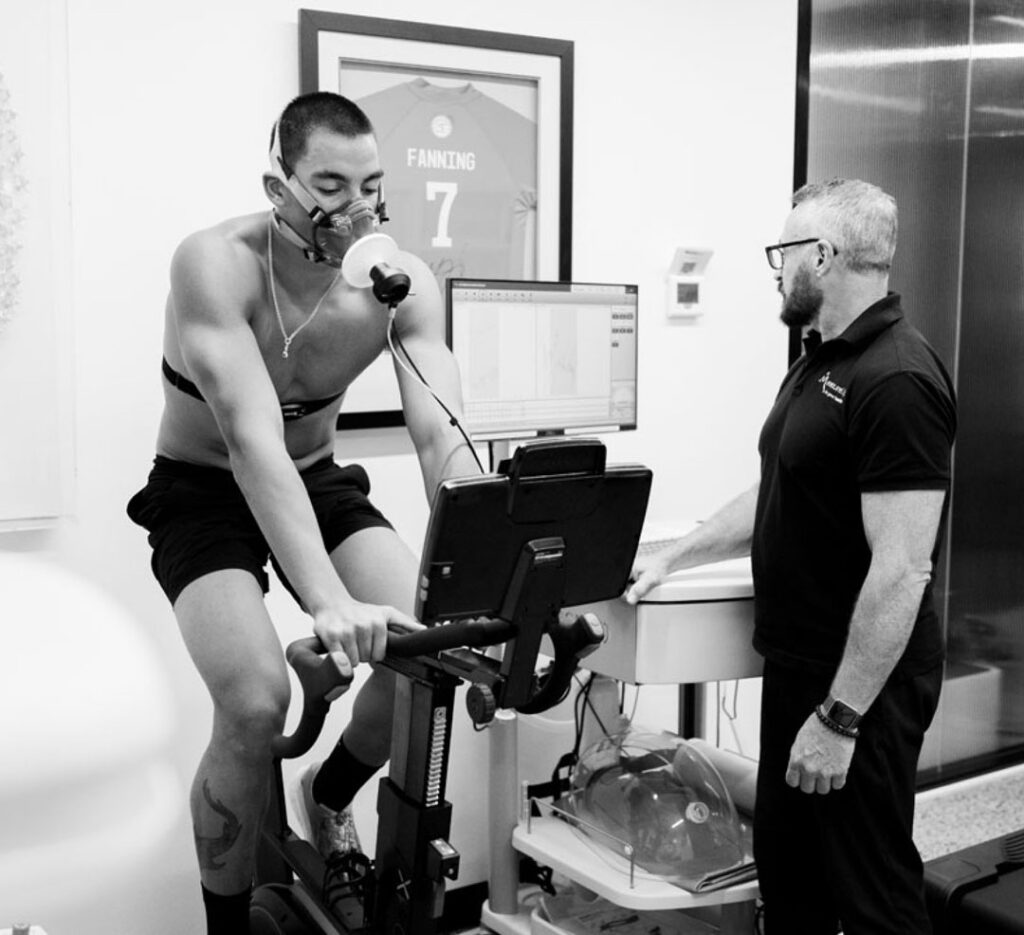
A VO₂ max test measures an individual’s maximum oxygen consumption during a graded exercise test. It assesses aerobic capacity and cardiovascular fitness. The VO₂ max test can also be used to provide personalised training zones and be used as a measure of longevity.
At our flagship Brisbane and Sydney Clinics we offer VO₂ max testing on a treadmill or bike. Make your choice on the day.
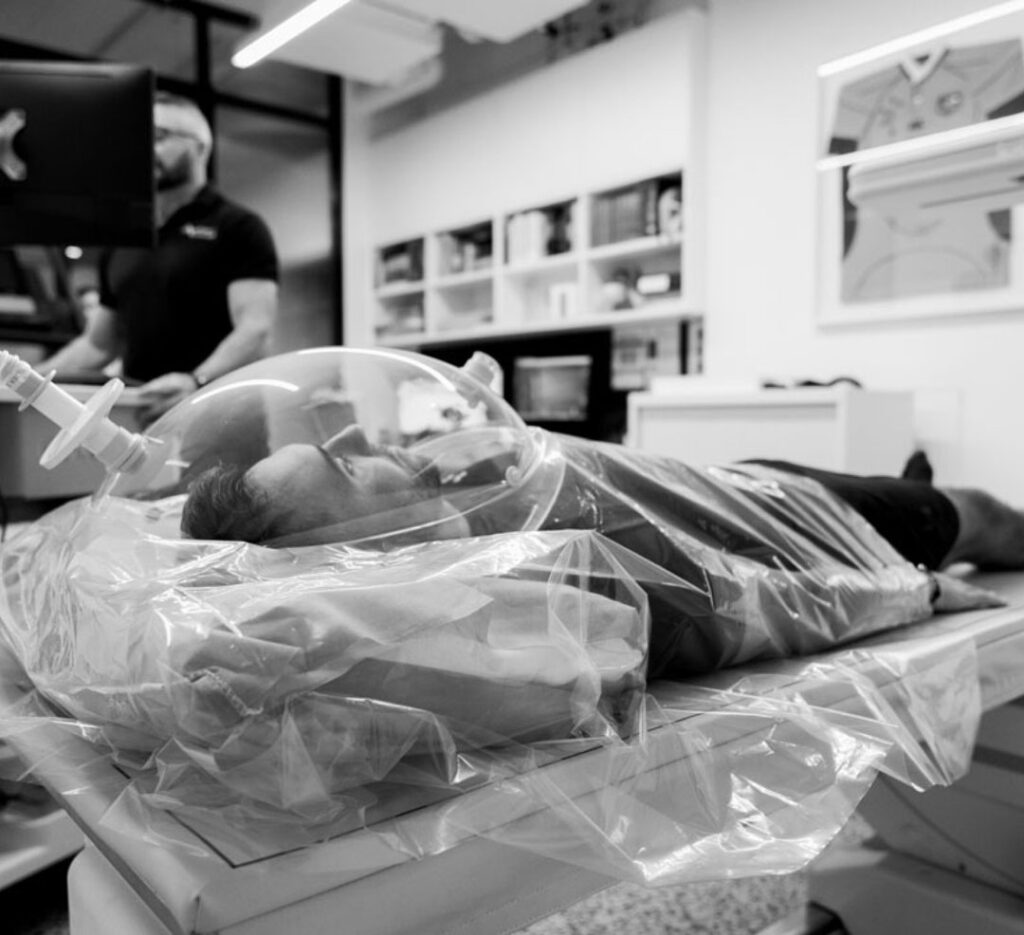
Resting metabolic rate (known as RMR) is the amount of energy the body expends at rest. This test will provide you with the number of calories your body consumes at rest. This information is important when planning changes to your body composition such as decreasing fat mass or increasing lean mass.
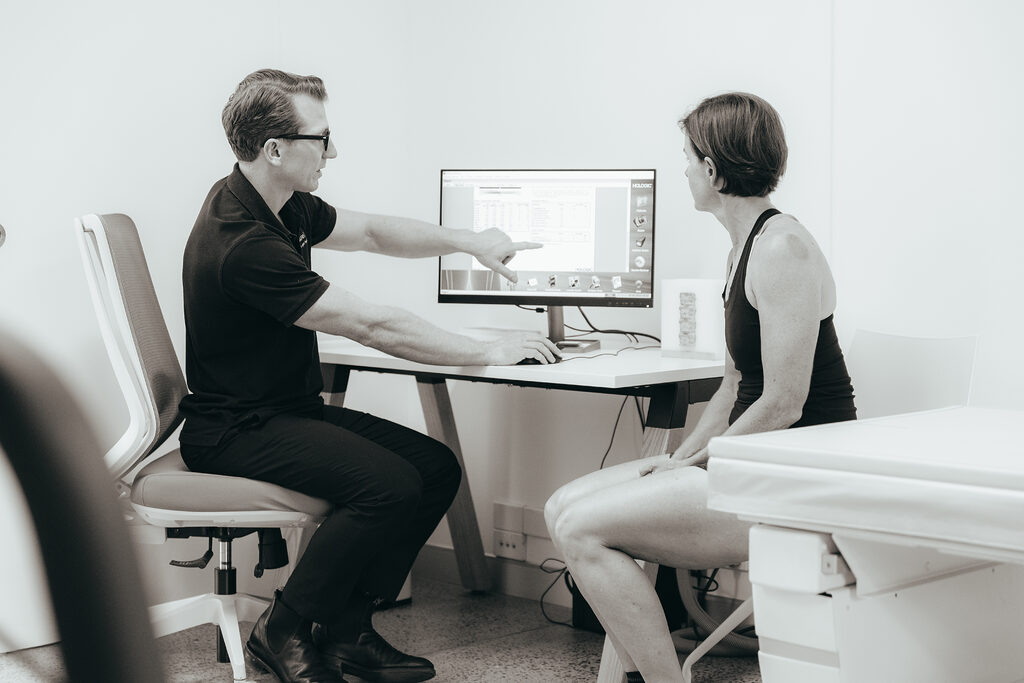
This package has been especially designed for those in pursuit of longevity and health. Encompassing three physiological testing solutions regarded by leading experts as the best predictors of longevity : DEXA Consultation, VO2 max and grip strength measurement. These tests provide you with important personalised data in not only measuring but helping you to optimise your health & longevity.
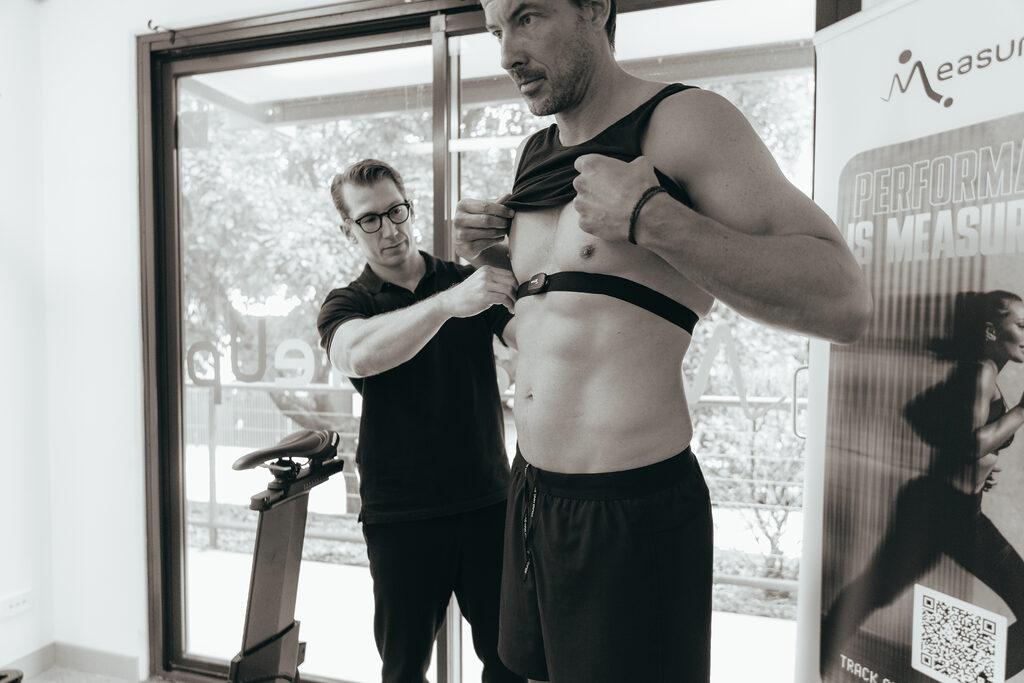
The performance package is our bespoke solution to achieving your best self. This 10–12-week program is specifically tailored to you by our accredited exercise physiologists to help you reach your goals sooner and onto the path of living well and increasing your lifespan/healthspan. This package will provide you with repeat measures of DEXA, VO2, RMR & grip strength. Our physiologists will tailor a strength and conditioning program and you will be guided by a nutritionist to elevate you to the next level.

Would you like to reduce absenteeism, work cover claims and staff turnover? To increase loyalty, productivity and team motivation? MeasureUp™️ can help you manage employee health in a planned, positive way.
Our mobile body composition lab will provide your clients with an accurate, reliable and precise body composition service at your gym door. Clients will not need to travel into the city to have their composition measured.

Scans in the mobile lab are 10 minute appointments. The results are analysed by our Exercise Physiologists, and sent through to the gym within 48 hours of scanning. We can also compile these results for you which is great for gym challenges.

In his book Outlive Peter Attia says, "I insist my patients undergo a DEXA scan".

Sign up to our newsletter to receive educational resources and to stay up to date with any news, events, and promotions.
We respect your privacy, unsubscribe at any time.




MeasureUpTM uses the power of science to help you improve your health and performance.
MeasureUp Pitt Street Lab:
Level 9/84 Pitt Street
Sydney NSW 2000:
Mon to Fri: 08:00 – 18:00
Sat: 08:00 – 13:00
02 8188 9730
Sign up to our newsletter to receive educational resources and to stay up to date with any news, events, and promotions.
Book easily using our online portal.
MeasureUp Brisbane Lab
Shop 27/76 Doggett St
Newstead QLD 4006
Mon & Weds: 07:00 – 15:00
Thurs: 10:00 – 18:00
Fri: 09:00 – 17:00
Sat: 07:00 – 13:00
07 4891 9999